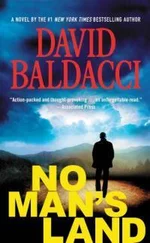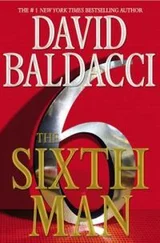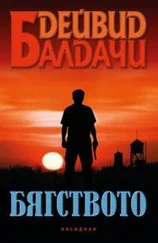Archer continued, “But we have to think this through. They’re going to find the bodies. It was at a picnic area. Folks are going to stop there, just like we did. They’re going to unwrap their sandwiches, take out the potato salad, pour coffee out of the thermos, and then look around and start puking.”
“Maybe the other guy will get rid of the bodies,” she said.
“Why would he do that?”
“He’s got exposure, too, Archer. He’s a criminal, not us. We were just protecting ourselves.”
Archer shook his head. “I told Howells to get the hell out of Reno. And now he’s dead.”
She shot him a look. “So I say we forget it happened and if anybody asks we don’t know anything. Two murderers are dead; so what? They got what they deserved.”
He glanced at her purse. “Well, no matter what, you might want to do something with the Smith & Wesson, then.”
“Why?”
“Because your slug’s in the man’s back, that’s why. They can match bullets. And speaking of, we need to get rid of the guns in the trunk.”
She started to bite at a nail painted bright green until it bled, as she thought about this. “We still stopping at Coalinga?”
“Right now I feel like I’m never going to close my eyes again, but we need gas, and I need some coffee. And staying someplace feels like the right thing to do. We both can sort of calm down.”
“Can I have a pull on your flask?”
He worked it free from his pocket and passed it across.
She took a healthy swallow, sucked her lips inward in satisfaction, and recapped the flask. “That’s better. You want a shot?” she asked, holding it out.
“I’ve had enough shots for today, thanks.” He pointed to the river rushing parallel to the road. “That’s a good spot to dump them.”
“Okay, Archer, go ahead. But not my gun. We might need it in case that guy comes after us again.”
He got out, grabbed the shotgun, Derringer, and .45 from the trunk, walked down to the riverbank, and tossed them all in. He watched them float for a few moments in the strong current, and then they were gone, like fog in the heat of a rising sun.
He walked to the car, got back on the road, and sped up.
“You feel better?” she asked.
“Yeah. How about you?”
In a tone he had not heard her use before she said, “I... I killed a man back there, Archer. I... I’m not sure I’ll ever feel right again.”
He saw her hands suddenly start to shake and the muscles around her throat tense. Sweat bubbles rose up on her forehead.
He quickly pulled off the road, leaned over, and opened her door.
“Go ahead. Do it out there. Quick!”
She jumped out and ran behind a tree, and he could hear her being violently sick. She came back a couple minutes later rubbing at her mouth. Then she got into the car and shut the door.
“You okay?”
She nodded but still looked unwell.
“Sometimes there’s a delayed reaction. Like your mind can’t wrap itself around something right away.”
“Yeah.”
“They were going to kill us, Liberty, like you said.”
She pressed her face against the cool glass, closed her eyes, and exhaled a long breath. “Yeah. Now just shut up and drive.”
Coalinga wasn’t a thriving metropolis, nor was it the one-horse town Archer thought it was going to be.
Liberty eyed the welcome sign. “Where’d they get the name Coalinga? Is it Spanish?”
He pointed to his right. “There’s a railroad spur over there and those are loaded coal cars, so maybe there’s your answer.”
It was nearly ten o’clock, and the town seemed to be sound asleep, with no one out and most of the buildings closed up.
“I don’t know if we can get gas or coffee now, and we might end up sleeping in the car till morning,” said Archer. “Because the filling station over there is shut down for the night, and this doesn’t look like a two-gas-pump kind of town.”
“There’s a light on in that building over there.”
They stopped in front and climbed out. The air was cool and dry, and the wind had died down some. Archer slipped on his hat and locked up the Delahaye. The sign out front of the building read: CLANCY’S SALOON. OPEN AT NOON, CLOSE WHENEVER.
“I like Coalinga better already,” said Callahan as she saw this, too.
Archer held the door for her and they walked in.
The four hundred square feet inside consisted of a mahogany bar with ten backless stools, a jukebox with neon tubes blinking wearily, four tables with a pair of low-backed chairs designed in the form of a ship’s wooden wheel around each, a small dance floor made of scratched herringbone parquet on which not a soul was dancing, and a pay phone on the wall. A pencil dangled from a string tacked to that wall, and lines of phone numbers had been scribbled across the paint like math equations. A small window behind the bar was where the food came through for the patrons seated there. A single swing door to the left of that was where the meals came through for the dining area.
Two men sat at the bar. One young and lean, one old and spreading. They both held mugs of beer, and both looked to be listing to the right in alcoholic zeal. Behind the wooden counter was a beefy man with curly red hair, a stained white apron, and shirtsleeves rolled up to reveal twin anchor tattoos, one on each forearm. A cigar was clamped on one side of his wide, toothy mouth. He was staring down at the cloth in his hand like he was wondering how it had gotten there.
Of the four tables, only one was occupied. On one side was a woman in her fifties with white hair and a long, horsey face. Her cherry-red purse sat on the table next to her plate of raw oysters on the half shell and a bourbon, neat, percolating in a short glass. Across from her was a gentleman, also in his fifties, suited in a three-piece worsted wool with a loosened dark tie. He was chubby and sweaty, and his napkin was pinned across his white shirt front like a bull’s-eye. A plate of spaghetti and clams lay in front of him, and he methodically worked his fork and spoon in tandem as he ate. He had a glass of red wine as his meal’s liquid companion.
At first no one looked up when they walked in. Then Chubby with the clams saw Callahan and made such a fuss that White Hair turned to see. Her long face became pinched and sour. She turned back to her tablemate and said something low, snappy, and apparently pointed as a spear because the clams once more became Chubby’s sole focus. The bartender looked up, saw Callahan, grabbed a glass, and started polishing it to a fine sheen, a sloppy grin spreading across his face, as though he’d just won a prize that would take him away from here. The young drunk turned, eyed Callahan, and almost fell off his stool. The old drunk would probably have done likewise, but he had already fallen face-first into the mahogany and was now snoring.
The swinging door did its thing and a woman in her twenties with sandy brown hair and short, muscular legs and attired in a light brown waitress uniform with faded red piping came out carrying a platter of clean glasses. She saw them and pointed with her free hand to a table.
“Have a seat, be with you folks in a sec.”
Archer and Callahan sat, and after the waitress deposited the glasses in a double-door wooden cabinet, she came over with menus and cloth napkins folded around cutlery. She handed it all out and said, “Can I get you something to drink? If you want food, the kitchen closes in twenty minutes.”
“Then we must be getting close to ‘whenever,’ ” noted Archer.
“Yeah, you’re the first person to come up with that line,” she said in a bored tone.
“I’ll have coffee, black,” said Archer. “You folks know how to make a gimlet?”
Читать дальше
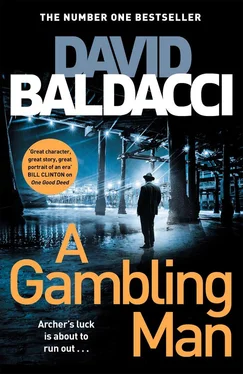
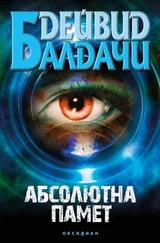

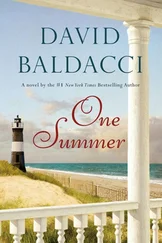
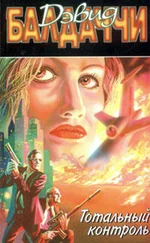
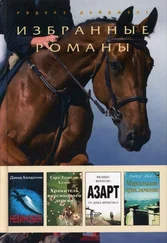
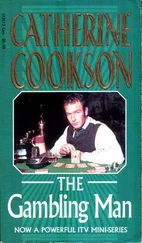
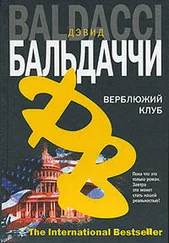
![Дэвид Балдаччи - A Gambling Man [calibre]](/books/384314/devid-baldachchi-a-gambling-man-calibre-thumb.webp)

